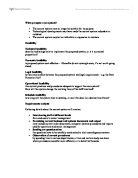In the commissions, the workers were paid £2000 a year to investigate. This was unlike anything that had been previously carried out, and meant that the report was more likely to be reliable, as they were more qualified, and had experience in these matters. This could also work against them, because, as they were based in London (built up area) they may have less actual experience of what rural areas was like, especially if some of the evidence collected may had been bias. Some historians, such as Blaugh, believed that the commissioners had pre-conceived ideas that the old poor relief system was unreliable, and that this effected their judgement and evidence they collected was only that which was against the current poor laws, and the good stuff was ignored, or played down.
The commissioners recommended that there should be larger areas than parishes in control of poor relief. These were called unions, which each contained about thirty parishes. Each union had to set up its own workhouse, and had paid officials. This was unlike the old system, whereby, the overseer was inexperience, unpaid and only had the job for a year. Each union was now to be managed by a board of guardians, which much contain at least one representative from each parish. This was where the main decisions were done, and made it a more safe system, as there was less way for corruption.
The system of parishes grouping together was not a new one. The Gilberts act, 1782, made more organisations possible within different parishes. Gilbert thought that there should be workhouses available to every parish, and that they should be what their name implied, as a place to work. These workhouses were meant to be self-supporting, where it would help to decrease poor rates. This system was not entirely successful, and many parishes were not willing to set up such corporations. Under these new guidelines, there was to be a similar system to that of Gilberts. A workhouse was to be set up for each union, which would be self absorbed. There would be full time people employed to look after the people there, and they would be designed for work by the able bodied poor. There were further suggestions put forward by Chadwick, which said how there should be many different types of poor house separating men, women, elderly, sick, and children. This proposal was dismissed, but a compromise was made where they were kept separated but within the same workhouse. This shows how there was actually little difference in the workhouses, as the system introduced was mainly the Gilberts act and what was already being done, but more widespread, and now officially.
The workhouses were built to be as a punishment, and segregation of mothers and children, husbands, and wives was necessary. This meant that only those who had no other choice but to go into the workhouses did so. Quite often the workhouse test was given to see whether a person was needy enough to be given outdoor relief (if sick, or elderly) by seeing if they were desperate enough to be put in the workhouse. Outdoor relief was not completely abolished, although it was considered as a waste of money, and it was proposed to be abolished. The old system worked, where the overseer was in charge of who received outdoor relief, and who got sent to the workhouses. Workhouses were also not always a possibility, so other systems were derived. The speenhamland system was brought about when the price of bread was rising faster than the farmers could afford to raise pay to their workers. Some parishes used this system, where the parish would subsidise the workers payments in line with the price of bread. The roundsmen system was another substitute for workhouses, where the paupers would be given tickets to give to their employees. If they were offered work, the council paid some or all of their wages for that day. Similarly, pauper apprentices were quite often orphans or young people who would, in the new system, be sent into a workhouse. This would be where they went to live with a local tradesman, where they were taught the trade, and how to make goods themselves. All of these types of outdoor relief were abolished under the new poor laws, and all of those who were able bodies were put into the workhouse.
The new poor law was a new poor law. Due to social, political, and economical circumstances, it was necessary for the time, as the old system was ineffective, inefficient, and bad for the poor. The new laws meant that there were tighter controls over the parishes and the poor; this made less chance of uprisings and rebellions. I agree similarly to the ideas of Digby; recent investigations on the Old Poor Law have produced convergent conclusions. They emphasise that relief under the Old Poor Law was essentially a response to population growth, under-employment, and low wages, rather than their causes as the Royal Commission’s report alleged.







